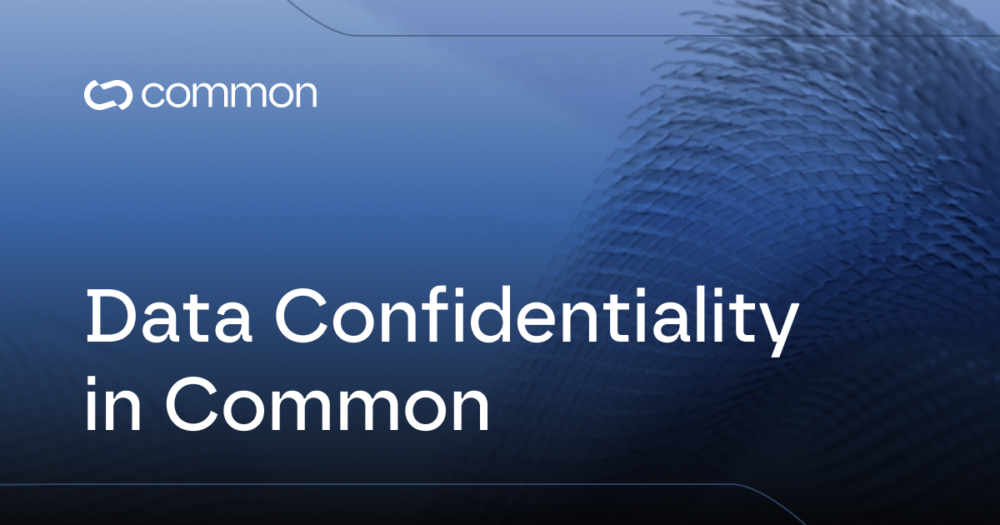Common will introduce a much-needed property in DeFi and that is data confidentiality. The suite is being designed to protect its users’ financial data from send to withdraw with an implementation of shielded pools and batched transactions.
Moreover, these features will continue to improve as we pass through further milestones on the Common roadmap. The team is looking to introduce a privacy layer and MPC wallet functionality in the upcoming Common releases, leading to fulfilling the mission of building a Private DeFi Suite for all.
Why is data confidentiality important in DeFi?
The open nature of blockchain transactions allows anyone to inspect any user’s trading activity. For many, this poses a significant concern in terms of competitive advantages and privacy.
These are users such as professional traders and institutions who tend to prefer centralized exchanges as a result. There, other users and the general public are not privy to their trading activities, albeit at the cost of ceding control to the exchange.
A preference for privacy has contributed to the substantial liquidity disparity between
decentralized and centralized exchanges. What’s needed is a unique approach to a DEX that bridges this gap by offering the same data confidentiality advantages in a decentralized setting.
The current state of data confidentiality in DeFi
Such an approach is possible but has, so far, remained theoretical. Ever since the inception of ZCash, the implementation of zero-knowledge proofs for the creation of shielded pools has become commonplace in web3.
Shielded pools are regularly used as “magic boxes” that protect participants from onlookers who can trace their deposits and withdrawals by simply looking them up in block explorers. They create a scenario where users still have the choice to reveal their financial information if they choose to do so, but it is not publicly available by default.
The current problem with these solutions is that they have little-to-no integration with DeFi protocols. While its users may engage with DeFi, they have to leave the protection of a shielded pool in order to do so.
There have been multiple attempts at solving this problem. One of them has been to design a DEX based on anonymized market maker algorithms where swaps are public but the identities of swappers remain undisclosed. This has proven to be insufficient, however, since transaction amounts remain visible. Other attempts such as peer-to-peer trading reintroduce inefficiencies in order matches and transaction settlements.
The Common approach to data confidentiality
Common will improve upon the existing work in building confidential DEX protocols and create a viable alternative. It will combine ZK-SNARKs and a new building block for web3 known as a Decryption Oracle to guarantee a completely confidential user journey.
Just like in earlier projects, Common will keep user identities strictly confidential. The main difference is that the DEX will be able to keep transaction amounts confidential as well. They will be revealed eventually, but only upon execution, when this information doesn’t give any additional edge.
This will be possible because the protocol will process orders in batches so that the only transaction amount that’s publicly visible at any one time is the total value of orders made by multiple users. A Decryption Oracle (based on MPC technology) will then decrypt the aggregated orders so that the protocol is able to match them appropriately without disclosing the individual amounts.
(Order batching also plays an important role in Common’s upcoming ability to mitigate the MEV problem.)
The benefits of using this mechanism for order fulfillment are twofold. Common can both integrate seamlessly with shielded token pools that protect user identities, all while individual transaction amounts are kept confidential as well.
Making data confidentiality Common
Common’s data confidentiality features are in the works but you can already check out its AMM with Liquidity Pools and Farming by trying out the Common testnet. You can also follow Common on X for updates on its upcoming features. Both AZERO stakers and Common testnet users will be considered for a future CMN airdrop.

